Chet Manikantan: Innovation Machine
/in Economic Opportunity, Featured, JobMakers /by Editorial Staff
This week on JobMakers, host Denzil Mohammed talks with Chet Manikantan, immigrant from India and founder of Aegis Studios, which builds crypto games. Chet was founder of a string of companies and a partner at two venture firms, but he was almost denied the opportunity to innovate and create jobs in the U.S. by our outdated immigration system, if not for a chance encounter that led to a workaround for select foreign-born entrepreneurs. And he’s keenly aware and grateful that this country gave him what he needed to succeed, as you’ll learn in this week’s JobMakers podcast.
Guest:
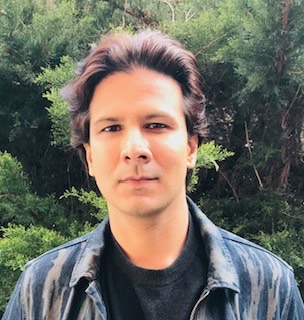 Chetan (Chet) Manikantan is a software engineer, and a serial entrepreneur. Chet currently serves as Venture Partner at Companyon Ventures, Product Owner at OMPay and as mentor, judge and advisor to several companies, independent and university accelerators. He most recently co-founded a Fintech venture, Tengu which was acquired in 2018 by another Fintech company, FutureFuel based in Boston. He also served as the Global Entrepreneur in Residence at UMass, Boston. Chetan obtained his electronics engineering degree from BIT Bangalore, where he served as the President of the student body. Post graduation, he worked at Microsoft in various software development and business development roles. After his time at Microsoft, Chetan co-founded several successful start-ups. In these roles, he has been responsible for technological innovation as well as high-growth sales. Chetan has regularly contributed to mainstream news media, appearing in The Times of India’s expert column, and as a guest speaker at various radio talk shows both in India and in the USA.
Chetan (Chet) Manikantan is a software engineer, and a serial entrepreneur. Chet currently serves as Venture Partner at Companyon Ventures, Product Owner at OMPay and as mentor, judge and advisor to several companies, independent and university accelerators. He most recently co-founded a Fintech venture, Tengu which was acquired in 2018 by another Fintech company, FutureFuel based in Boston. He also served as the Global Entrepreneur in Residence at UMass, Boston. Chetan obtained his electronics engineering degree from BIT Bangalore, where he served as the President of the student body. Post graduation, he worked at Microsoft in various software development and business development roles. After his time at Microsoft, Chetan co-founded several successful start-ups. In these roles, he has been responsible for technological innovation as well as high-growth sales. Chetan has regularly contributed to mainstream news media, appearing in The Times of India’s expert column, and as a guest speaker at various radio talk shows both in India and in the USA.
Get new episodes of JobMakers in your inbox!
Read a Transcript of This Episode
Please excuse typos.
Denzil Mohammed:
I’m Denzil Mohammed, welcome to Jobmakers,
Denzil Mohammed:
Freedom and opportunity. These are the two words that most often spring up when I ask immigrants why they chose to move to the United States. And these two words can be interpreted in many ways, the freedom to think. However you want to come up with ideas, unencumbered by laws or culture or other norms is something we take for granted, but is truly appreciated by our newest Americans. For Chet Manikantan, immigrant from India and founder of Aegis Studios, which builds crypto games, that freedom and opportunity to ideate is what drew him here. Founder for string of companies and a partner at two venture firms, Chet is an innovation machine, but he was almost denied the opportunity to innovate and create jobs in the us by our outdated immigration system, if not for a chance encounter that led him to a fledgling initiative that offered a workaround for select foreign born entrepreneurs. The talent Chet possesses could have benefited another country. And while we are strictly lucky to have him here, he’s also keenly aware and grateful that this country gave him what he needed to succeed. As you learn in this week’s Jobmakers podcast, Chet Manikantan, founder and CEO of Aegis studios, which builds crypto games. You’re an immigrant from India. Welcome to the Jobmakers podcast. How are you?
Chet Manikantan:
Hey, Danzil. I’m doing great. Thanks for having me today.
Denzil Mohammed:
So you’re a serial entrepreneur spanning two continents including your country of origin, India, and your adopted Homeland, the United States. So without getting to specifics, but what sort of the common thread among all the companies that you’ve helped to found what connects them all since you are doing such different things?
Chet Manikantan:
Technology at the core of it, primarily because I’m, I’m a software engineer and I’ve found technology is something that democratizes things. It scales pretty quickly, and it is it’s easily adopted by people. It simplifies things sort of abstracts, complicated human society problems into simplified solutions in the form of a user experience on a phone or a computer screen. So pretty much everything I’ve done has some level of technology involved maybe different industries, different kind of problem sets. But the core of it’s always been technology and innovation. If that makes sense.
Denzil Mohammed:
Now your journey to the us is unlike probably everyone I’ve interviewed on this podcast, most of them came here seeking an education. But you came here on a business visa, right?
Chet Manikantan:
Yeah. So it’s a long story. So which really kind of the, I had visited the United States before, when I was working at Microsoft, a research back in India for some of the Microsoft events and to visit their offices in the United States prior to moving to the us officially what really changed was one of my earliest startups back in India was Guruji. It’s an education technology platform. We were selected to be part of an accelerator that was called unreasonable. It’s at sea to selected 10 companies from around the world to be on a board, to go to about 14 countries. Over a hundred days, we met all kinds of fantastic people, such as Archbishop, Archbishop, Desmond Tutu Megan Smith, who was the former CTO for America WordPress founder, Richard Branson almost made it, but it was a fantastic experience. The culmination of all that was at Washington DC.
Chet Manikantan:
So we presented at the United States states state department in DC. And that experience was kind of what shifted my, my thinking because I, for the most part had decided to stay in my home country, build businesses and make an impact. But what I re recognized was that the, the sheer innovation, the sheer willingness of the community to support ideas from regardless of where you’re coming from and the ecosystem is set up for innovation and entrepreneurship in the United States, like no other place in the, in the world. And that experience started to have an influence over my perception of what I wanted to do next. And when I went back home, I took about a, about six months to think about the potential ways I wanted to move forward with my career. One of them was to say, okay, maybe it’s time for me to consider moving to the United States.
Chet Manikantan:
It’s sort of like an example that I used that, you know, you can’t grow grapes in new England. It’s that doesn’t really work very well. The climate has to be the right place for it to be good. You Napa valley is where we get some of the finest wines in like California wines. So for an entrepreneur, for a startup, you need to be in an ecosystem that is well set up for that. You, United States has been a center for innovation entrepreneurship for hundreds of years, for a reason. And I recognized it during my trip. So I, I sold everything. I had, whatever I had earned back in India just told my family that I’m going to go and see what happened. So I just used my business visa to jump on a plane and landed in the us. In fact, I first landed in San Francisco, which is the backup startups, and that’s the story. And it’s very different, like you said, on Orthodox compared to most people.
Denzil Mohammed:
And as a result, I mean, you, you came here by yourself, you didn’t come here with family. You didn’t come here to start school and, and build friendships. So you started out sort of with a really blank slate. And I imagine that made it a lot more difficult for you to get a solid footing here. I read that you used tools like meet up and Eventbrite to network and establish a name for yourself. What was that experience like? I mean, networking in and of itself is a sort of uniquely American thing in, in certain regards, right?
Chet Manikantan:
End of the day, when you start something, whether you are life or startup or anything, anywhere a job, you have to start from the scratch. So for me, coming into the us, I realized that the first thing I need to have is a support system of, of like-minded people and people that are willing to listen to what I have to offer. So obviously a lot of tools, technology comes back to sort of helping people like me Google maps, obviously to navigate meetups and event brights, where you can find free events where other people are present with some sort of a theme that you think is going to be useful to you and vice versa. So it became an easy way to get started, but I also used some of my connections or my old acquaintances I’d made during my trip to the us the prior, prior, prior year to sort of get some ideas of where I should go and what I should do.
Chet Manikantan:
And people said, go to meet up and go to these events. So that’s how it started. And frankly, when I first came to San Francisco, my expectations were very high. I, it, I was very quickly or made to realize that it’s harder than I’d imagined. Having said that there were fantastic people that I met along the way. I was able to, I was staying in a host for, for a week trying to find accommodations to figuring out what I’m gonna do. And I met this, this German researcher at MIT media lab, who was visiting San Francisco for his PhD interview at Stanford. And he really liked what I was looking to build. And so he invited me up to Boston saying, you can crash on my couch and, you know, see if, if, if it makes sense for you to be in Boston for a week or so.
Chet Manikantan:
So in the middle of snow, get in 2015 in Boston, I took a flight to Boston because it was so cold and snow, everywhere. People kept meeting indoors and there were a lot of events that was going on and Boston’s a perfect, like everything’s so small that you can get anywhere to anywhere. So in that 10 days, I met everyone, including people at the MIT media lab various entrepreneurs at the Cambridge innovation center. It really sort of changed my view of where and how I wanted to go build my next startup. So I ended up in Boston. So I never went back to San Francisco,
Denzil Mohammed:
How Fortu and how lucky you are that you met a fellow immigrant, but from Germany who is in Boston and, and it made it happen. And I like that reality check. You know, we, a lot of people outside of the us do believe that the money grows on trees and that the streets are paved with gold. They should come to Boston and see our streets they’re really, really bad. So around that time that you came to the us, an innovative initiative was launched by several people in Boston, including someone I interviewed on this podcast last year, attorney Jeff Goldman, describe this global entrepreneur in residence program. And what was being part of, what did that entail for you?
Chet Manikantan:
I did not know about it. I’ve I think it was, like I said fortuitous for me to have met somebody who invited me to up to Boston had I stayed back in California. I would’ve had to find other means to stay there. So being in Boston,uuhelped me make connections. I was able to speak to some investors for my, my startup at the time. And I kept hitting a wall where everybody said that I love what you’re doing. I wanna support it. I cannot invest in a company where I don’t know if you’re going to be able to remain in the country. So at a meetup, which I think was organized by this organization called forward us or FWD dos, which is sort of an advocacy group, trying to help,uimmigrants in the us. Uand, and the person there told me about the G G I R program. And so the next thing I did, I hopped on the red line and I went straight to UMass. I had no appointment, no meeting. I just showed up to the center. And,uI said, Hey, I’m so, and so I want to talk to the person concern, and I wanna see if I can be qualified for this,
Denzil Mohammed:
The audacity of immigrants like you. Hmm
Chet Manikantan:
<Laugh> yeah. I, I, you know, it was sort of, I guess, you know, what, what else, what am I, what else am I gonna do? I, there is an opening, right at the end of the whole knocking on 20 doors. I finally find there’s a door that might open. So I wanted to take every chance I could get. And that door was the gir program, which I found out when I met the the, the person there that it’s only for immigrant students from universities in the us, at least that’s the way I, it was framed. So I was a little disheartened because I was like, I didn’t go to the school, go to school in the us, and maybe I’m not gonna be qualified for this. So what I did is I went back home. I thought about it. I wrote a long email to the, the director of the program bill broad the time and, and sort of explained to him what I’m building and what it is that I’ve accomplished before coming to the us and that I qualify for the program.
Chet Manikantan:
And I would like him to consider my application. So I, I think I was a 32nd or 33rd person, but probably the only non-student gir that was accepted into the program at the time. And I didn’t take it lightly, obviously that was a great opportunity. The university provided me a type of a concurrent visa program that allowed me to build my startup while con contributing to the university ecosystem. And yeah, it took me a few months, but I finally was able to, you know, stay in the country and build my startup
Denzil Mohammed:
Again, what luck and just to be clear, that program is it came into existence as a way to allow entrepreneurial foreign born university students to remain in the country and start businesses without having to go through the typical work visa lottery system, which is, you know, it’s, it’s, it’s, it’s not a great system. It doesn’t there aren’t enough of those visas. And it’s tough to get those visas, as you say, you kept hitting a wall and that uncertainty of not knowing whether you stay or not. And I mean, I’ve been there, it’s, it’s not a great feeling to want to build a life, but having this great uncertainty. So you were able to start a company, one of several perhaps describe to us one or two of your favorite companies.
Chet Manikantan:
Well my favorite company was the first one was really goji, which is an educational technology company that we, I co helped co-found back in India. It was primarily focused on teachers. And the impact that it creates is having better teachers means you’re better student outcomes. And it’s something that gets largely ignored in the discourse around improving quality of education. And especially in countries like India and Mexico and south and Africa, and other parts where the resources are so limited that the, the teachers are usually just the most ignored section of the our, our component of the education system. So we built this platform, which is an educational technology platform, which is like a gamified platform, which are adapts to the teaching style of the teacher, sort of, sort of acts as a mentor for novice teachers and a sort of an assistant for expert teachers.
Chet Manikantan:
But it’s really focused entirely on providing lesson plans and guidance for teachers to be able to make sure that they’re able to teach the topics to their children effectively. And one of the best outcomes. My favorite moments was when we first piloted it at a tiger reserve protection area in India, where there is a national of tiger reserve that is created by the government of India to protect wildlife. And one of the, one of the ways it has accomplished is to make sure that the tribal communities remain in the wildlife, because for them, they care about their biodiversity. If the sanitation healthcare and education is not good, they typically migrate to the big cities, but you want to, you want them to stay there, but you wanna provide them better schooling and better outcomes. So we piloted it at a tiger reserve first, and the kids there outperformed some of the best school kids in the city.
Chet Manikantan:
So that was my favorite moment. And we finally sold the company part of the company to the one of the Indian government arms to become the national teacher platform. So it’s definitely been my favorite. The next favorite is the one that I’m working on right now is sort of gamifying that process of same sort of taking some of those artifacts of gamification and applying it to the new age financial literacy that people are struggling with, especially when it comes to introduction of new assets, like digital assets, like cryptocurrencies and NFTs. A lot of people don’t know what they’re doing. They make a lot of mistakes. They learn from the, the bad actors. So we are building a platform that gamifies the process and helps people become better traders and better educated financially to, to take control of their own finances. So, yeah, those are my two at this point.
Denzil Mohammed:
So all of this goes to show you, you’ve talked about the connections between the United States and other countries and the kind of brain gain that we receive through this fall foreign talent. So it all goes to show this outsized impact immigrants are having in us innovation yet without that global entrepreneur residence program, it is unlikely an innovate and entrepreneur job creator. Like you would’ve been able to stay in this country, and it is not an uncommon story of job creators from foreign countries, unable to stay here because there’s not a visa for them. There’s not a visa for entrepreneurs. How can the United States fix this?
Chet Manikantan:
So the gir program, while it helped me. And I think there is a lot to be said about how good it has been for many founders. It is an imperfect solution. It is a specific to a particular state. It is specific to a particular university system. It also has a high barrier to entry for many immigrant founders. I think that an entrepreneurial visa could do fantastic. Right now I’m in a space which is highly innovative very global in nature, just because of the fact that it’s a, a technology that doesn’t require any kind of credentials. So I’m constantly frustrated myself, but I’m seeing that the talent is currently now going out of the us because the current immigration is very hard for people whether to find jobs or to start companies. We seeing capital flight, we’re seeing a innovation flight.
Chet Manikantan:
We are seeing you know, a lot of the things that attracted to me attracted me to the United States. Some of them are not entirely being protected in the manner that it should be. We are seeing many, many companies that are billion dollars worth currently domiciled and foreign shores, hiring people from different places. And all of that, all those jobs can be created here. The us all that capital can be brought to the United States. There’s tax revenues. There is so much what do you call it? If you do have investments, then you know, you have office spaces, people then rent places like so much economic activity be, can be created out of it. And I’m very surprised that a lot of the policy makers are not able to recognize this. And I think there’s a, there’s a great frustration amongst the technology innovators as well as founders. And frankly, a lot of people that I speak to on a regular basis are unhappy with the current sort of disposition. So an entrepreneur visa would be fantastic, perhaps an immigration reform would be perfect. But you know, we can, we can keep advocating. And I think the work that you do is definitely helping change that narrative.
Denzil Mohammed:
Ultimately that’s so hope. But yes, those I, those frustrations are not restricted to any particular place across the country. People from all over the world who have things to offer. And yet there’s nothing, nothing in place for them to, to be able to remain here. And we are shooting ourselves in the foot, especially for those students who go through our university system and gain more skills and, and knowledge. We want to keep that haired, right. So you chose the United States and this country allowed you to flourish as an immigrant entrepreneur, apart from the fact that you did this by yourself, which I cannot emphasize enough. You didn’t have a social safety net. You didn’t have family hair, you didn’t have, you know, your friends car to borrow, to take you to this place or that you did this all on your own. How do you feel about the United States as a place that allowed you to flourish as an entrepreneur?
Chet Manikantan:
Oh, I love it. I mean, every, every aspect of it, right. I think the, the core of which I think is current, there’s a current discourse around this topic, which is kind of controversial. So I’ll try to stay within the lines of what is potentially more tolerable or acceptable for a lot of people. But really the fact that there are two sort of natural rights that most of us have as humans it’s before human laws, the natural law is that being able to express yourself is something that is very human. That is very much a unique to the mankind. Right? And, and also of course, regardless of the species, being able to protect yourself, your like the right to self defense, like those are some of the things that are natural laws of unlike many other countries and, and throughout history, those things have always been somehow infringed upon by certain kind of manmade laws, which is typically saying, you cannot take censorship, or you cannot say certain things.
Chet Manikantan:
You cannot do certain things. You can, you have to conform in, in the United States when the founding fathers created the constitution and the bill of rights and everything, the first amendment or, or the freedom of speech is a right, that cannot be changed by anybody, which is an absolute, amazing thing, which is what creates opportunities for ingenuity. People can think people can have ideas. People can present it to people. Some of them are terrible ideas, a lot of fantastic ideas come out of them. And those have resulted in, in, in the kind of economic powerhouse, the innovation powerhouse that America has been, and many countries try to emulate that by creating sort of these economic free zones or certain kinds of you know, incentives provided for entrepreneurs. But why is innovation still coming out of the United States? It’s because people are able to think, and people are allowed to express themselves. It’s the idea that matters and ideas spread and, and not being subject to any kind of social cultural or legal restrictions is why people come to the us. I dunno if that makes sense.
Denzil Mohammed:
It makes tremendous sense. We’re a nation of immigrants in a nation of ideas. And I just love how you brought it all the way back to the constitution and the founding fathers and what this country was built on. Chet Manikantan, thank you so much for joining us on the Jobmakers podcast. It was a real pleasure talking to you.
Chet Manikantan:
Thank you so much. Appreciate you having me on this podcast.
Denzil Mohammed:
Jobmakers is a weekly podcast about immigrant entrepreneurship and contribution produced by Pioneer Institute, a think tank in Boston and at the Immigrant Learning Center in Malden, Massachusetts, a not-for-profit that gives immigrants a voice. Thank you for joining us for this week’s fascinating journey into one outstanding immigrant story. If you know another outstanding immigrant business owner, we should talk to email Denzil that’s D E N Z I L at jobmakerspodcast.org. I’m Denzil. See you next Thursday at for another JobMakers.
Recent Episodes:
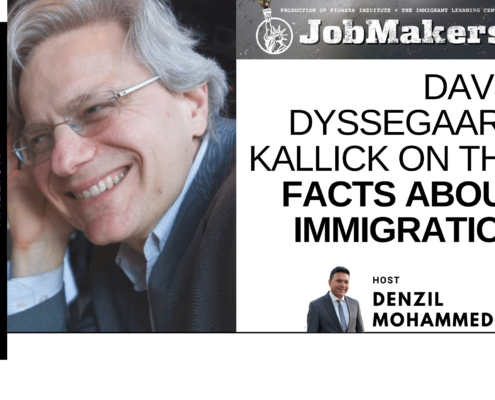
David Dyssegaard Kallick on the Facts about Immigration

Ely Kaplansky Goes from Immigrant to Inc. 5000 Insurance Entrepreneur
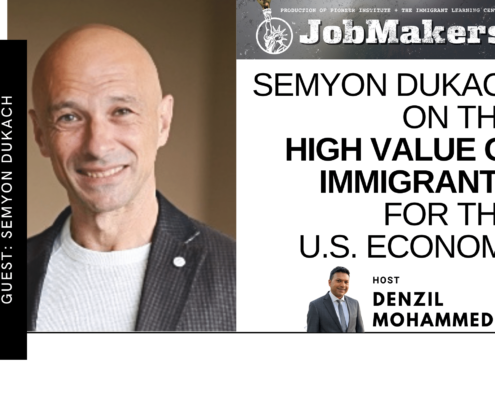
Semyon Dukach on the High Value of Immigrants for the U.S. Economy
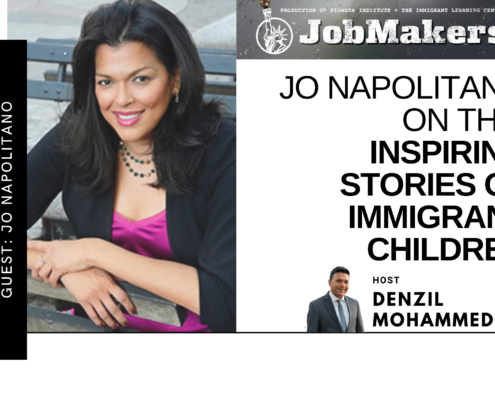
Jo Napolitano on the Inspiring Stories of Immigrant Children

Umesh Bhuju Seeks a Fair Deal for Immigrants, Farmers & the Environment

Dr. Babak Movassaghi on Winning in Football & Healthcare Innovation

Jitka Borowick on Starting a Small Business during COVID
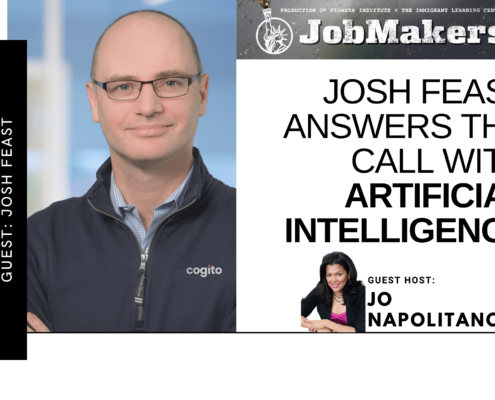
Josh Feast Answers the Call with AI



